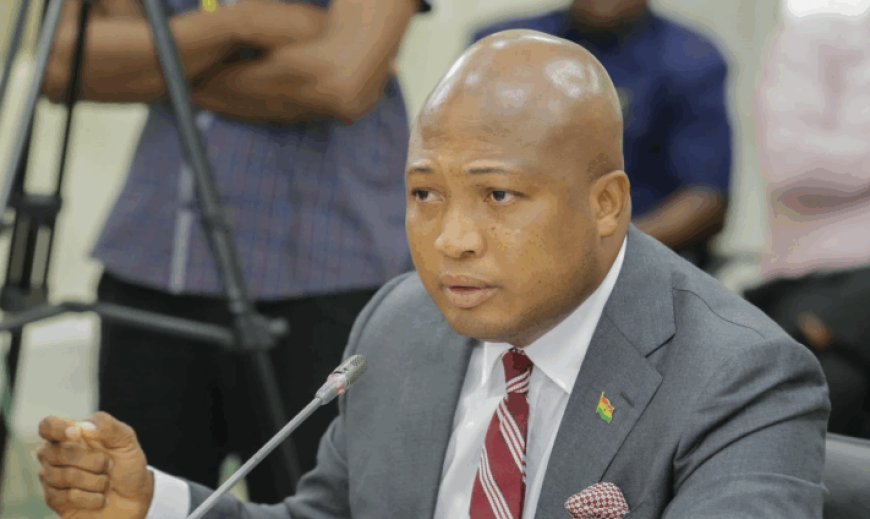Over 700 Ghanaians scammed and trafficked to Cote d’Ivoire, other West African countries – Ablakwa
Member of Parliament Samuel Okudzeto Ablakwa has disclosed that over 700 Ghanaians were trafficked across West Africa through deceptive job offers. Many ended up in scam compounds in Côte d’Ivoire and Nigeria, coerced into fraudulent operations. The revelations underscore an urgent need for cross-border cooperation, public education, and victim support mechanisms.

Accra, July 24, 2025 – Samuel Okudzeto Ablakwa, Ghana’s Minister for Foreign Affairs and MP for North Tongu, has sounded the alarm on a growing human trafficking crisis affecting over 700 Ghanaians. Victims were lured by false job offers and coerced into fraud and pyramid schemes in Côte d’Ivoire, Nigeria, and other West African countries, raising serious concerns about cross-border criminal networks and the vulnerability of job-seeking youth.
Trafficking and Scam Operations Unveiled
In a notable incident, a joint operation between Ghanaian and Ivorian police, supported by INTERPOL, rescued 33 West African nationals—including Ghanaians—in April 2025. The victims paid nearly US $9,000 each for fake job placement in Canada, only to be held in Abidjan and forced to recruit others into online scams using staged images and false identities Vanguard News+12border-security-report.com+12Wikipedia+12.
Similarly, in June 2025, Nigerian authorities, in coordination with INTERPOL NCB Abuja and Ghanaian counterparts, rescued 46 trafficked Ghanaians. These individuals had been promised jobs in Europe but were redirected to Nigeria and forced into cyber-fraud operations linked to the QNET network. Seven suspects have been arrested in connection with that ring Vanguard News+2Vanguard News+2Channels Television+2.
While those operations led to the rescue of dozens, Ablakwa claims the true scale is much larger — estimating over 700 Ghanaians affected across multiple operations, often involving traffickers disguised as recruiters.
Systemic Exploitation and Emerging Threats
Interpol's July 2025 crime update warns that West Africa is evolving into a regional hub for scam-centred human trafficking. According to their data, victims from 66 countries have been trafficked into online fraud centres, and grim abuses including forced labor, debt bondage, sexual exploitation, and torture are common IOL.
These scam centres typically attract vulnerable individuals with promises of high-paying jobs or academic placements abroad. Once entrapped, victims have their passports confiscated and are coerced into recruiting others from within their networks.
Human Cost and Social Impact
Victims endure severe physical, emotional, and financial trauma. In many cases, families are misled into believing their relatives are thriving overseas due to staged photos and controlled contact. According to survivors, those who dared to resist were subjected to beatings, isolation, and threats, perpetuating cycles of fear and silence.
In Ghana, the social stigma attached to scams compounds survivors' trauma. Many victims struggle in silence due to shame and fear of being labelled "kwasia" (foolish), while losing savings, schooling opportunities, and even family support Channels Television+13Hot Digital Online+13interpol.int+13Reddit.
Ablakwa’s Call to Action
As both an MP and Foreign Affairs Minister, Ablakwa has called for urgent action:
-
Strengthened policing and border controls, with greater intelligence-sharing among West African nations;
-
Public education campaigns to help job seekers identify red flags, such as demands for upfront payment, lack of clear employer information, and high-pressure recruitment tactics;
-
Support and reintegration programs for rescued victims, including counseling, medical aid, and legal assistance;
-
Regional policy coordination to dismantle cross-border trafficking syndicates and hold traffickers to account.
Why It Matters
-
National Security & Human Rights: The large-scale trafficking of Ghanaians represents a failure of protective infrastructure and undermines national sovereignty.
-
Economic Fallout: Victim savings and state funds spent on rescue and repatriation strain Ghana’s social welfare systems.
-
Regional Stability: The expansion of trafficking and scam centres across West Africa risks destabilizing border communities and fueling organized criminal networks.
-
Moral Imperative: These crimes are not just financial—they violate dignity, freedom, and integrity. Effective solutions must prioritize the rights and welfare of victims.
What to Watch For
-
Government Response: Will Ghana expand collaboration with neighboring countries and empower INTERPOL coordination in trafficking hotspots?
-
Public Awareness Efforts: Will civil society and media amplify survivor stories and educate at-risk communities?
-
Legal Follow-Up: Will traffickers and recruiters be prosecuted effectively under Ghana’s anti-trafficking laws?
What's Your Reaction?


















































































